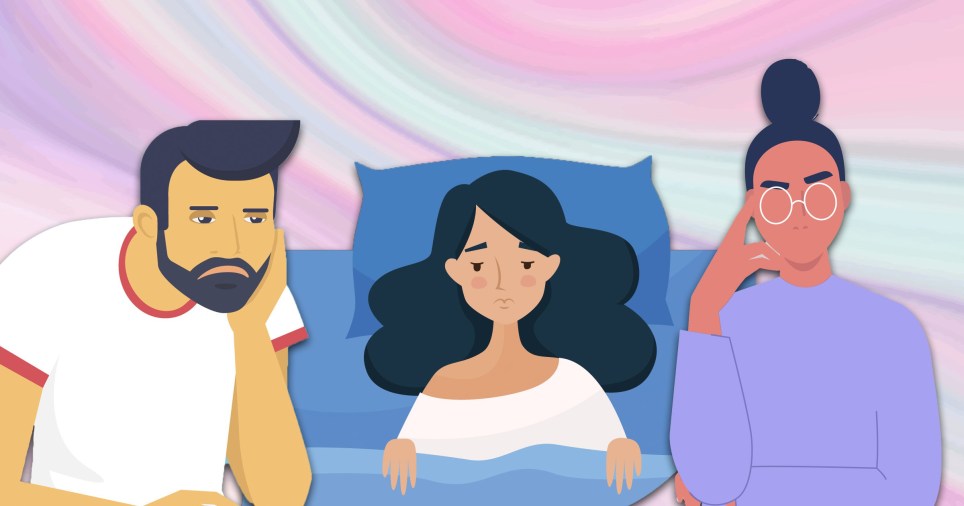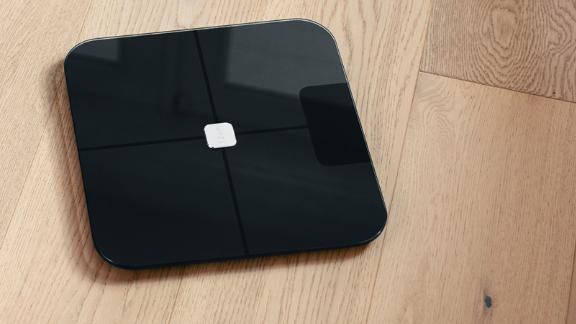
Drowning in boredom and endless, empty days? You’re not alone. (Photo: Getty/Metro.co.uk)
We are approaching a year of isolation. It is almost 365 days of uncertainty, isolation and disruption of our daily lives.
In addition to this monumental and constant stress, we are also deprived of all the things we normally do to keep ourselves relaxed and healthy.
We have now lived for almost a full year with no parties, no weddings, no vacations, no big sleepovers, no drunk breakfasts, no last minute days. In other words: We wanted to have fun – and the effect of that should not be underestimated.
It may seem frivolous or superficial to complain about not being able to have fun amidst the losses and devastation caused by the pandemic. But the reality is that losing an integral part of your lifestyle – suddenly and over such a long period of time – has a real and damaging impact on many people’s mental health.
Feeling like you’re not having fun can create a bad mood and lead to a spiral of negative thoughts, which in turn can lead to unhealthy habits, says Honey Langcaster-James, psychologist and Noom ambassador.
It is important to have moments where we can enjoy life to balance the trials.
Much of this negative spiral stems from the fact that there is nothing to expect.
We often use fun things we plan to do to break up the monotony of daily life, work and routine. With nothing in front of us but blank pages in our journals, the heavy, stressful and boring elements of life seem endless and threaten to overwhelm us.
Having nothing positive on the horizon can increase stress, leading to a rise in cortisol (the stress hormone) and making it harder to get out of a difficult situation, Hani says, which can lead to symptoms of depression.

I really struggled with the emptiness in my life. (Photo: Getty Images/iStockphoto)
If left unchecked, serotonin levels can also drop. Serotonin is the main hormone that stabilizes our mood and gives us a sense of well-being and happiness.
According to Darling, anticipating moments of pleasure in the future has a positive impact on your mental health.
There are actually three main areas of the brain, she explains. The ventromedial prefrontal cortex, which is involved in encoding rewards and the perceived value of events, the mesencephalon, which influences motivation and is rich in dopamine, and the hippocampus, which is involved in memorizing events.
All three regions demonstrated involvement in positive events. So if you have something to look forward to, it can also give your brain a boost.
Hannah is 33 years old and lives alone in London. She’s been working from home since the lockdown began, and she says the lack of fun in her life makes her feel bad.
I don’t even know how I’m going to celebrate my weekend, Hannah told Metro.co.uk.
There are only two days left to fill. Since the beginning of this latest isolation, I have really struggled with the emptiness in my life. I feel like I exist, like I’m not alive at all.
I’ve had to cancel so many things in the last 12 months, just like everyone else. Weekends with friends, music festivals, my sister’s chicken. These are the things that usually interrupt my year and make me feel good and happy – without them I feel so flat.
Sarah, 26, I agree. She lives in Manchester with two housemates and has been working remotely since the start of the pandemic. She says the lack of fun affected her motivation to do anything.
I literally feel like I’m wasting my best years when I’m stuck at home on the couch, she says.
Read more: Mental health
All the things that used to seem like a good time to relax – sneaking Netflix or spending the night alone – are now all we can do, so I’m completely lost.
At first I didn’t realize how much I needed things like going out, eating with friends and going on vacation, but now, after almost a year of inactivity, my brain is screaming for an overflow.
It’s weird because even though I want to have fun, I also feel like I’m robbed of any motivation to do anything. The less I do, the less I want to do.
According to cognitive behavioral psychologist Martina Witter, Sarah’s reaction is not at all surprising. She explains that depriving ourselves of pleasure can reduce our enjoyment of life and make us feel that what we are doing is not worthwhile.
As humans, we need to have fun in order to thrive – it’s a basic human need, Martina says. Because of the pandemic, physiological and safety needs naturally took precedence over psychological and self-actualization needs.
Funny people are not motivated, and I’ve seen it in the clients I work with.
Lack of access to entertainment can lead to lower levels of dopamine and serotonin because the natural desire to have fun cannot be satisfied – all work and no play is good for everyone.
The increase in mental illness is a clear psychological impact of our lack of fun, as depression, anxiety, stress and burnout increase Covid.
Martina adds that you’re probably struggling to find the motivation and drive you need because the rewards are limited in life right now.
People deprived of fun are also more prone to anxiety because they do not know when they will be able to resume fun activities due to uncertainty and constant changes in Covid’s policies.
How to deal with the feeling of not having enough fun in an enclosed space

Maybe it’s time to think about what pleasure means to you. (Photo: Getty Images/iStockphoto)
Above all, it is important to remember that you are not alone.
If your life isn’t fun, it can quickly look like a personal failure, especially if you get carried away watching other people’s lives on social media.
The whole point of blocking is to get us all in the same boat. So if you feel like your life is empty and boring right now, remember that everyone else is probably feeling a similar level of dissatisfaction.
Second: Try to create structure and a plan to integrate pleasure into your life – even if it means redefining what pleasure means to you.
It can be hard to create structure when you feel like your days are blending together. Therefore, we asked the experts to give us their best advice on how to deal with this situation:
Write something funny in your journal.
A good tip for your overall well-being is to write something fun in your journal, even in advance, to cheer you up, says Darling.
Even if we can’t plan a vacation yet, include the Zoom event you signed up for or the phone call with your best friend. Just putting it in black and white can help build motivation and enthusiasm.
Having something to focus on can make you feel like what you’re going through is passing and better times lie ahead, Honey adds.
Setting achievable goals
According to Hani, setting achievable goals can also be very helpful, especially if they lead to improved health, well-being or lifestyle.
Constantly working on your goals now can give meaning to your life and make you feel like it’s not just wasted time and fun.
The goal of being healthier for your loved ones, such as getting in shape or losing weight, can help you look forward to a better future.
Finally, it can also be motivating to strive to achieve something when you reach progressive milestones, which can increase your sense of hope because you can literally see yourself achieving your goal.
Think about what it means to have fun.
Are there ways to have fun without spending money, traveling or being in large groups?
According to Martina, it’s an important time to turn inward and find creative ways to create new expectations of pleasure and personal fulfillment.
It’s important to consider your core values and passions when identifying leisure activities because then you’ll be motivated enough to pursue them, rather than abandoning them because of their limited psychological, social and physical benefits, Martina explains.
In the year 2020, digital and virtual entertainment has emerged, such as online cocktail classes, cooking and sports, and I recommend that you take an interest in it rather than resisting it, otherwise you will find yourself in a state of turmoil, isolation and apathy.
Do something to bring back
Martina suggests thinking about the possibility of fulfilling ourselves in places other than those we traditionally think of as fun, such as giving back to those in need.
It can be helpful to think about volunteering if you find it useful, she suggests. It is an opportunity to build social bonds and purpose in the midst of a pandemic.
Reflect on what helped you during your initial rest period and begin to resume these activities to cultivate a sense of gratitude that will contribute to your happiness.
Check your priorities
Ask yourself: is it fun to be in the spotlight of a pandemic? Or just stay alive? – Martina said.
I know it’s bleak, but that’s the reality, and we need to try to rethink our beliefs and adjust our expectations because some people just want to find a job or have enough income for their basic needs.
These are tough times, but remember – tough times don’t last, tough times last.
It’s so important to remember that it’s a privilege to fill your life with modern signs of fun – like going abroad every year or spending weekends at restaurants and bars. As Martina says, learning to cultivate gratitude can help us recognize this privilege.
Read more: USA
Eyes forward
I suggest you plan fun activities for the end of your social life, such as vacations, spa days, afternoon tea, birthday parties, says Martina.
It gives you hope that this crisis will end and at the same time gives you a sense of resilience and optimism.
Don’t forget to do the things you’ve been putting off and include fun activities that give you a sense of accomplishment, as this is important to cheer you up.
Do you have something to tell me? We want to hear from you.
Contact us: [email protected].
MORE: How to deal with burnout at home
MORE: Tips to help parents cope with feeling overwhelmed in an enclosed space.
MORE: Most popular Bridgerton-style homes for sale in the UK
Related Tags:



